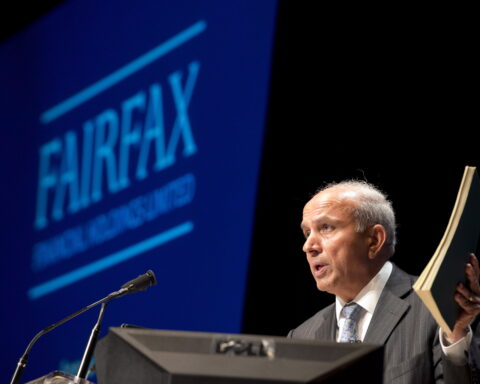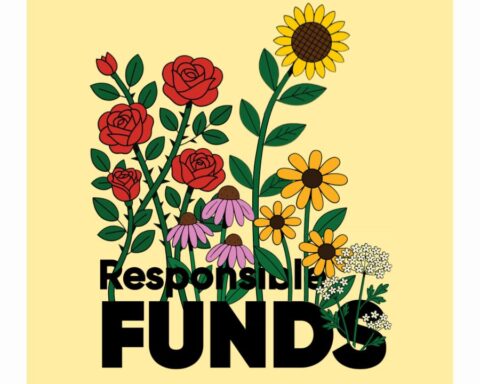In a new anti-greenwashing policy, Canadian mutual funds will no longer be able to claim the vague and oft-criticized strategy of “ESG integration” if they want to be included in the country’s official list of responsible investment funds.
Since the early 2000s, ESG integration has become a widely used strategy in the financial industry. If your mutual fund claims to use this strategy, it’s essentially telling you that fund managers consider company data on environmental, social and governance factors in their investment analysis and decisions. Most managers, however, use it to improve financial returns rather than achieve social or environmental objectives.
The strategy has come under increasing criticism in recent years as a marketing tool to attract ESG-focused investors. In a case that received a lot of attention, DWS agreed to pay $25 million to the U.S. Securities and Exchange Commission after it accused the German asset manager in 2022 of greenwashing by labelling its investments “ESG-integrated” while only a very small proportion of portfolio managers used ESG ratings.
The Canadian Investment Funds Standards Committee (CIFSC), a body of investment management and data providers that oversees national fund standards, decided to take action. As of August 31, the strategy is no longer considered an acceptable approach for any fund wishing to be officially recognized as a responsible investment fund.
The crux of the problem is that it’s not possible to distinguish an ESG-integration fund from a non-ESG mutual fund “because there is no guarantee of a defining feature, nor is there any promise that ESG information is being used at all,” CIFSC said in an industry release. “This would increase the potential of perceived greenwashing for investors who seek to find ESG objective funds.”
The new policy tells the mutual fund industry, in effect, that it’s okay to use ESG integration as an investment tool – just don’t call your fund a responsible investment fund because you use it.
“ESG integration is a process,” said Fundata Canada vice-president John Krisko, who also serves as CIFSC’s vice-chair, in a company blog. “A process does not have an objective, or a measurable endpoint.”
The CIFSC action is part of an overall effort by the responsible investment industry to turn the tide on greenwashing. A global set of common definitions has been established by global responsible investment networks. Researchers and asset managers are pulling back on their estimates of ESG assets as trillions of dollars in investments once considered to be “responsible” or “sustainable” are now judged to be of doubtful ESG validity.
RELATED:
Clean energy stocks are making a comeback
Bank financing for fossil fuels dips second year in a row
How consultants have taken over sustainability reporting – and not for the better
In March, the Canadian Securities Administrators (CSA), the network of provincial financial-industry regulators, issued a highly critical report on ESG fund disclosures, saying lack of transparency on ESG practices can lead to the perception of greenwashing.
Securities commission staff observed “a considerable increase” in funds claiming to consider ESG factors, without being clear on the extent of ESG decision-making. “To prevent greenwashing, the name and investment objectives of a fund should accurately reflect the extent to which the fund is focused on ESG,” CSA staff said.
The CSA called on the industry to bring clarity and consistency to disclosure and communications to avoid misleading investors on the nature of ESG funds they purchase.
CIFSC oversees classifications for Canadian mutual funds on matters such as asset classes (cash, fixed income, equity, for example) and how funds are sold (commission-based, fee-based advice, do-it-yourself and institutional). Since 2022, CIFSC has also maintained an RI fund list, providing a definitive easily accessible register of responsible investment funds for investment managers, advisors, investors and the public.
To make it to the list, ESG funds must employ one of the following strategies: ESG exclusions (screening out specific industries, sectors, regions or companies; i.e., oil and gas), ESG best-in-class investments that meet certain desirable criteria (i.e., human rights leaders), ESG thematic investing (sectoral themes; i.e., clean energy), ESG-related engagement and stewardship (using shareholder influence to effect change) and impact investing (investing to bring about certain outcomes; i.e., increase affordable housing). Prior to this summer, ESG integration was also on the list.
In August, after notification that ESG integration would be removed as a qualifying strategy, approximately 40 funds out of about 500 on the list asked CIFSC to remove the strategy from the flags for their fund. All but one of these funds remained on the list by flagging one or more of the other approved strategies, according to CIFSC chair Danielle LeClair.
While this might imply that most funds do not use ESG integration as a greenwashing tool, CSA staff pointed to a significant number of investment manager websites that suggest that all or most of their funds consider ESG factors. Yet staff found no disclosures of ESG specifics in fund prospectuses.
Eugene Ellmen writes on sustainable business and finance. He is a former executive director of the Canadian Social Investment Organization (now the Responsible Investment Association).







